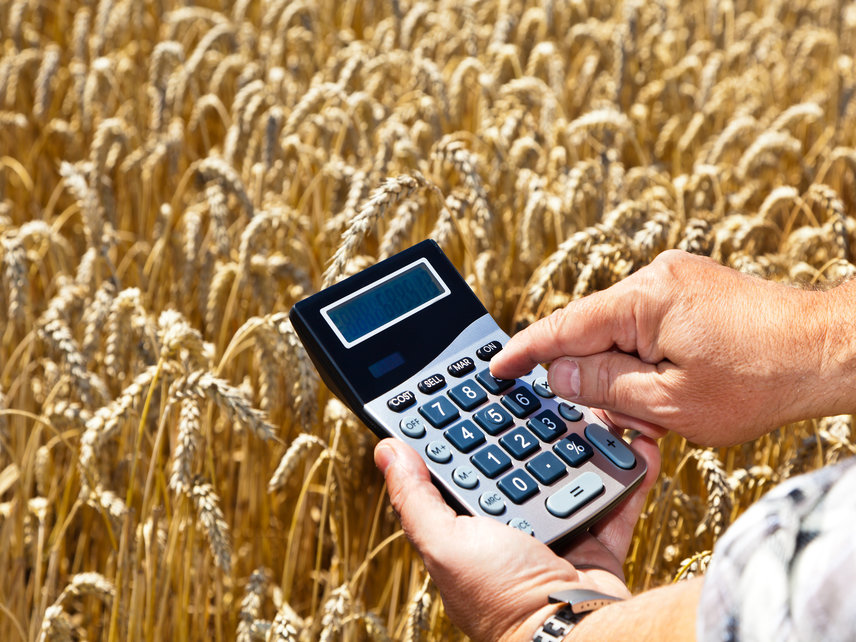Senators Aim to Axe Program Giving Farmers Guaranteed Profits While Sticking Taxpayers With the Tab
It's "like insuring your car for $5,000, and getting a check for $10,000 after it's totalled," says Sen. Jeff Flake

When crops fail, taxpayers pay.
A popular federal crop insurance program—the Harvest Price Option, or HPO—will cost taxpayers an estimated $21 billion over the next decade in order to guarantee profits for farmers who experience crop failures.
Sen. Jeff Flake (R-Ariz.) and Sen. Jeanne Shaheen (D-N.H.) are aiming to slash agricultural subsidies by eliminating the Option. The bill would keep traditional insurance crop programs in place.
Traditional crop insurance is a safety net protecting farmers during unexpected crop failures. It pays farmers when harvests sell for less than the price predicted at planting season.
An HPO policy guarantees reimbursement based on the highest market price, for example, during a drought that hurts yields and creates a crop shortage that drives up prices. If the crop price at harvest is higher than was anticipated at planting season, and crop yield is lower than expected, farmers with an HPO policy get reimbursed for crop losses based on the higher market prices.
For that reason, HPO policies are popular, insuring in 2016 more than 90 percent of U.S. acres planted with corn and soybeans, and more than 80 percent of acres planted with wheat, sorghum and cotton.
Proponents of HPO claim that without the federal subsidized insurance, American farmers would face harsh economic conditions.
The elimination of HPO most likely won't be the death knell for American farms. It won't even be the end of agricultural subsidies in general. As Reason's own Christian Britschgi has reported, it's not like farmers are short of other options when it comes to taxpayer subsidies.
Joseph Glauber, a visiting scholar at the American Enterprise Institute, recently pointed out to The Hill, prior to HPO implementation in the 90s, the agricultural sector opted to receive similar insurance coverage through the private sector.
Yet HPOs are lucrative for insurance companies as well as farmers. The federal program currently guarantees insurance companies a yearly payment of 14.5 percent of premiums, according to a report of the nonpartisan Congressional Budget Office (CBO). (Sen. Flake and Sen. Shaheen have filed a bill that would reduce that reimbursement rate to 9 percent.)
The federal government also agrees to cover insurance company losses if payouts exceed premiums, the report said. In addition, farmers pay only 40 percent of the insurance premium while the federal government pays the tab for the remaining 60 percent.
"HPO is like insuring your car for $5,000, and getting a check for $10,000 after it's totalled," Flake said in a released statement "It's the kind of program that only makes sense in Washington."
Editor's Note: As of February 29, 2024, commenting privileges on reason.com posts are limited to Reason Plus subscribers. Past commenters are grandfathered in for a temporary period. Subscribe here to preserve your ability to comment. Your Reason Plus subscription also gives you an ad-free version of reason.com, along with full access to the digital edition and archives of Reason magazine. We request that comments be civil and on-topic. We do not moderate or assume any responsibility for comments, which are owned by the readers who post them. Comments do not represent the views of reason.com or Reason Foundation. We reserve the right to delete any comment and ban commenters for any reason at any time. Comments may only be edited within 5 minutes of posting. Report abuses.
Please to post comments


"HPO is like insuring your car for $5,000, and getting a check for $10,000 after it's totalled," Flake said in a released statement "It's the kind of program that only makes sense in Washington."
Someone won't be sliding into a job with the insurance lobby when he moves on over to K Street.
I'm unsure of how precisely it works into things, but a tangentially related question popped up to me: are these kinds of "crop insurance" necessary to keeping the few "small farmers" still in business, or is it irrelevant?
I ask because, generally speaking, a large company has enough assets that a bad year won't hurt it. A small farmer though may not have enough savings/assets to weather a bad year, or a string of them.
I suspect the answer is "doesn't matter in the long run, they're all getting gobbled up anyway"
"I ask because, generally speaking, a large company has enough assets that a bad year won't hurt it. A small farmer though may not have enough savings/assets to weather a bad year, or a string of them."
If you can't afford insurance, maybe you have a non-workable business.
Even if they were that's not a justification. No one will bail out my industry when it becomes uncompetitive. Small farmers are going to have much bigger problems with capital. Lack of scale coupled with minimum capital increments for equipment means they will never be competitive unless they can find some special niche. Hey, about that organic thing...
"I won't vote for the bill because it doesn't eliminate all farm subsidies." says some hypothetical purist Libertarian senator some day.
One with hypothetical a ouchie on his ribs?